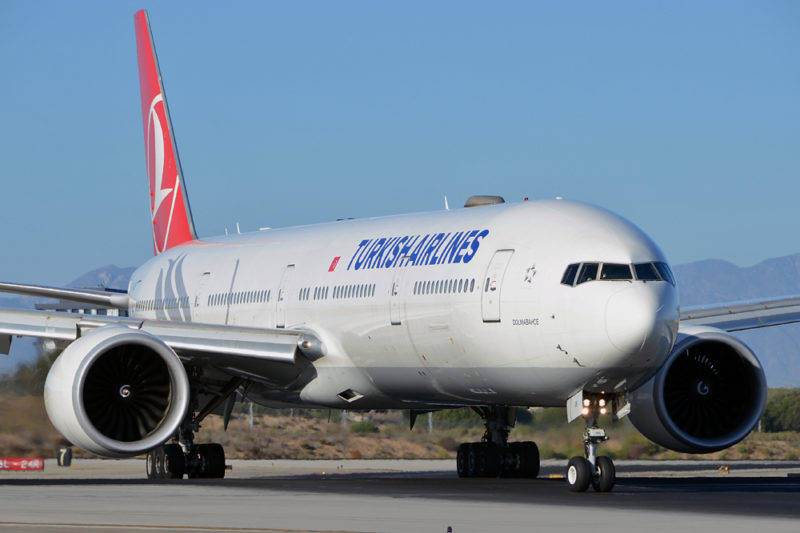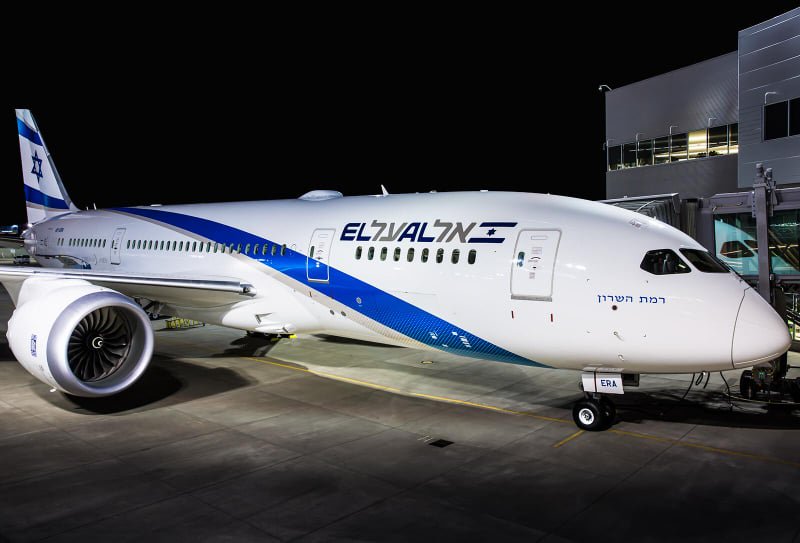The normalisation of the ties between the UAE and Israel has lead to opportunities opening up including: direct flights, tourism, health tourism, and business activities (part of the bilateral agreements). From my point of view, the UAE carriers are likely to benefit the most from the historic deal than El Al from Israel. The historic deal will gain a new stream of travellers that could help the hubs in Dubai and Abu Dhabi partly bounce back from the COVID-19 crisis. The ongoing airspace blockages mean there will be less benefits for Israeli carriers (and Israeli-registered aircraft) in the near future.
However, there might be some expectations made by UAE’s neighbour Saudi Arabia, an ally and important strategic partner of the United States in the Middle East. The country has made some expectations in the past when it comes to commercial flights to Israel (e.g. Air India).
Historic First Passenger Flight Between Israel and the UAE
US officials announced yesterday that the official first non-stop flight between Israel and the United Arab Emirates is expected to operate by El Al on a Boeing 737-800 next week (Tel Aviv – Abu Dhabi). The chartered flight on the Boeing 737-800 equipped with the Israel Aerospace Industries’ Skyshield system is expected to carry a US delegation, headed by the senior White House advisor Jared Kushner. On the top of that, an Israeli delegation (e.g. experts in aviation, banking, space and health care) will be onboard the flight. The mission for this special trip is to start negotiations that will eventually lead to the signing of bilateral agreements (e.g. direct commercial flights between Israel and the UAE).
Impact On Middle East Carriers
UAE’s gains could prove to be a setback for Qatar Airways in this case. In contrast to Bahrain, Morocco and Oman, it is very highly unlikely that the State of Qatar will establish diplomatic ties with Israel in the near future. For Turkish Airlines and Royal Jordanian it could be also bad news, as they have provided those profitable connections (Tel Aviv – Amman/Istanbul – MENA/Asia) in the past decade.
According to data collected from OAG and anna.aero, over 1.9 million passengers were carried between Tel Aviv and Asia, Africa and Australia last year in 2019. The direct access to a new market like Israel, with a large Jewish diaspora across the globe (e.g. Melbourne), could help Emirates and Etihad to restore their sixth freedom international network via their hubs during the COVID-19 recovery (e.g. Israel – UAE – Australia). The financially weak carrier El Al could maintain their focus on the key markets with higher yields (Israel-US and Israel-Europe) for kickstarting the decisive recovery process in the upcoming months (subject to the arrangement of a new financing plan with investors and stakeholders).
Approximately ~ 69,400 passengers flew between Tel Aviv and the wider Middle East region in 2019 (OAG/anna.aero, 2020).
The Middle East traffic was led by
- Dubai (13,181)
- Doha (2,610)
- Jeddah (2,524)
- Abu Dhabi (2,087)
- Beirut (1,438)
Of those passengers, the majority of which were Arab citizens of Israel/Palestine, were primarily served by Royal Jordanian via Amman, with Turkish Airlines via Istanbul second-placed.

In pre COVID-19 times, Tel Aviv – Amman was served up to 18 times weekly by Royal Jordanian; with an estimated 81% of Tel Aviv passengers connecting onward via Amman (e.g. Tel Aviv – Amman – Dubai, Tel Aviv – Amman – Bangkok and Tel Aviv – Amman – Hong Kong.
Challenges For El Al
Due to political, geopolitical and security-related reasons, El Al operate in an almost entirely point- to-point market; leading to an entire absence of hub-and-spoke traffic at Tel Aviv (e.g. Europe – Israel – Asia/Australia/Gulf). It leads to another key challenge for El Al to “cherry pick” demand between the two cities throughout the whole year.
From an economical point of view, the increasing security-related costs in Israel has to be considered as one of the additional threats to the economic feasibility of cost-intensive (ultra) long-haul services between Israel and Asia/Australia. El Al spends up to $110m a year to conform with the airline’s security measures required by Israel’s security service. In other words, the security-related costs per passenger are approximately 10 times higher than those in the United States of America (post 9/11). El Al’s constant struggle to be profitable in airline business is partly caused by operating in a very costly environment.
The restriction on flying during the Jewish Shabbat has to be also considered as another operational challenge for El Al, with the intention to operate ultra long-haul flights to Australia. During Shabbat, El Al flights have to land by sunset on Fridays and are not allowed to depart on a Saturday. Technical delays or events (e.g. AOG) that have run into Shabbat would force El Al to cancel flights. It would have a negative impact on the customer experience and thus decrease the demand for sales of direct services with the Israeli carrier.
From the ongoing airspace blockades to their ‘self-imposed’ Shabbat restrictions and their entire point-to-point network (no feeder traffic at any end) the national carrier El Al would face a unique set of challenges if they intend to operate (ultra) long-haul flights to Asia and Australia (bypassing Gulf hubs) for instance Tel Aviv – Tokyo and Tel Aviv – Melbourne.
Conclusion
The historic deal could boost traffic between the UAE, Israel and beyond (subject to COVID-19 developments in the near future). A non-stop link between Tel Aviv, Abu Dhabi and Dubai would be crucial for the stimulation of more point-to-point traffic (local traffic) for both UAE carriers in the post COVID-19 era, since their entire hub-and-spoke business model has been compromised by the current pandemic. The same potential for direct links applies for cargo/freight.
Last but not least, the UAE carriers, Emirates and Etihad Airways, could benefit from the other airlines’ above-mentioned disadvantages; the revenue generated from the Israel market would enable Emirates and Etihad to offset some of their pandemic-related losses.


